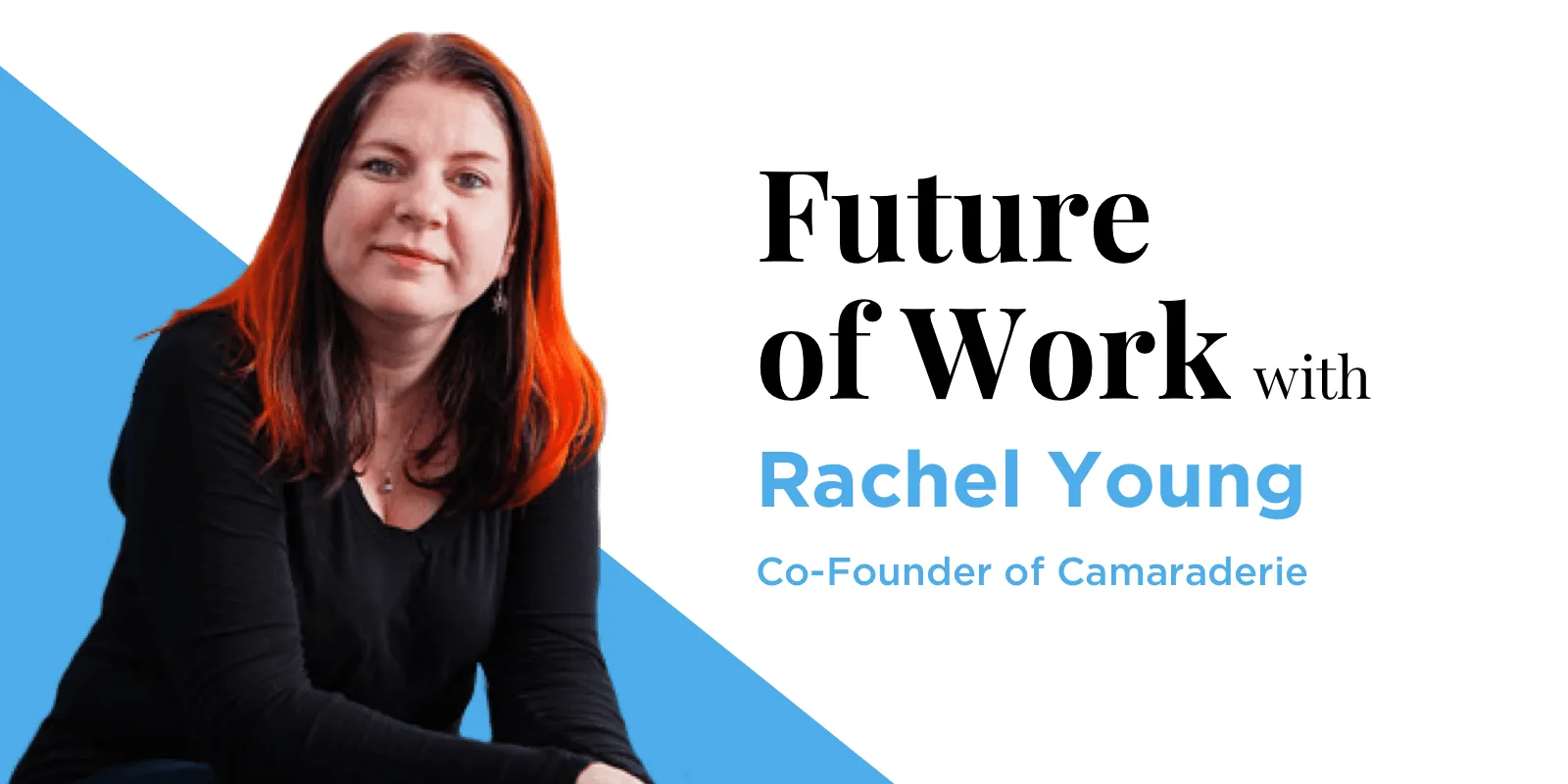
As a coworking founder it can get lonely at times, especially if your coworking space is one of the first in your community. Rachel took a unique approach to addressing this challenge and decided to discard competition in favor of collaboration. With Camaraderie and two other coworking spaces on board, they created and grew CoworkingToronto, a coworking collective, to the 15 spaces that it is today.
We had a chance to chat with Rachel and learn more about her journey.
What inspired you to open Camaraderie?
My story starts like many other coworking space founders, as a freelancer. I was working from home, cafes, and even the library; at home there were too many distractions, I couldn’t bring food in the library, and cafes weren’t professional and often were too noisy for me to be productive. I had another freelancing friend that I would spend time with and we figured there had to be a better solution.

He discovered coworking but the only coworking space in downtown Toronto had a strict application mandate for which we didn’t qualify. So, we decided to start one ourselves, one that would take in anyone that was looking for community and collaboration. We thought it was a great opportunity for us to help small business owners and freelancers.
Tell us a bit about CoworkingToronto. Where did you get the idea to bring the coworking community together?
As the third space in Toronto, the founders of the spaces that existed started talking about how we can work together to benefit our members and the small business community – it was the beginning of the spaces in the city talking to one another. We established a website called CoworkingToronto, a Twitter account and a Google Group so that we could talk with one another and start reaching out to new coworking spaces that opened up.
The key to our success was to position the collective as discarding competition in favour of collaboration.
"With collaboration being one of the core values of coworking, we believed that by working together as a cohesive group of space founders and managers, we could do even more for the greater small business community and strengthen the values of coworking within our membership communities."Rachel Young
The collective members meet monthly, work on projects together, share marketing opportunities, and even use the group as an outlet to talk to a trusted group of people who can relate to what they are going through.
Let’s talk about CoworkingToronto Day. How does a coworking day benefit the city and the coworking spaces within it?
CoworkingToronto Day started as something that we wanted to do as the CoworkingToronto collective to get some media attention and build awareness about coworking. After some research, we sent a petition to our Mayor to declare Feburary 24th as CoworkingToronto Day and the proclamation request was approved. We created an online advertising campaign to spread the word, and some spaces had events to celebrate it. It was a success!
Spaces reported recieving inquiries and tour requests as a result of the proclamation and advertising campaign. Other spaces not in the collective also decided to celebrate the day, as did business centres and executive suites. Overall, it was a great push for coworking in Toronto.
You’re also involved with CoworkingOntario and CoworkingCanada. How are the mandates of these organizations different from CoworkingToronto?
CoworkingToronto (CT) and CoworkingOntario (CO) are very similar collectives. CT is for spaces just within the City of Toronto, whereas CO is for spaces within the Province of Ontario. Both started as a need to connect the spaces within its geographical boundaries and have a list of qualifications that spaces must meet in order to qualify.

CoworkingCanada, however, will be a national trade association for the spaces in Canada. It will be a national, unified voice for coworking spaces, one that can market coworking on a larger scale, lobby government on behalf of coworking spaces and small businesses, take advantage of collective buying and offer educational opportunities to capture and share best practices.
Can you give some advice to other coworking thought leaders who are interested in starting a collective in their city or country?
I have three pieces of advice.
One is to just do it. Start something and figure out what it needs to address. Some cities will need that support from having a community. Some regions need to share marketing opportunities. Some countries need to share best practices. Figure out what structure it needs to be, if the collective needs to collect a payment, if there needs to be a list of qualifications to join. Work together to figure it out.
The second is to be prepared to spread the workload. A collective or association can be a lot of work, and it can grow to be something larger than what it started as. If the workload is spread out, and rotated on occasion, there’s knowledge transfer, less chance for burnout, and better chance for success for the collective.

And lastly, actively reach out to all spaces (and continue searching for new spaces), ensuring that you clearly communicating that the purpose of the collective is to discard competition in favour of collaboration. If they think of themselves as competitors, they’ll never truly be able to help one another. If they come to the table with the willingness to collaborate, anything is possible.
About the Optix Blog Series ‘The Future of Work With…’
‘The Future of Work With…’ is a blog series profiling members of the Optix community. We are speaking with our diverse network of entrepreneurs, business travellers, industry thought leaders, freelancers, and flexible workplace operators, and sharing their stories and experiences on how they dream up a more flexible future for work.
Originally published on October 8, 2015 at sharedesk.net.



